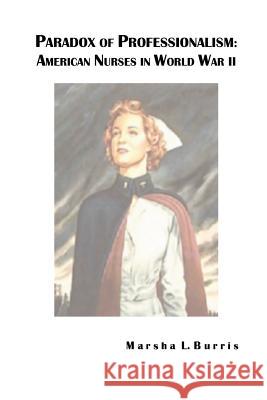Paradox of Professionalism: American Nurses in World War II » książka
Paradox of Professionalism: American Nurses in World War II
ISBN-13: 9780615150178 / Angielski / Miękka / 2007 / 240 str.
During World War II, nursing leadership used their wartime contributions to advance their professional interests. Nursing leaders directed the rank and file nurses in a war whose commanders demanded excellence in terms of skills and abilities while perpetuating regulations that restricted much of the efforts of recruitment and performance. Ex service nurses returned to the civilian work force confident in their abilities and ready to confront the causes of unfair working conditions under which they worked before the war. In adhering to the nineteenth century model of the well disciplined, self sacrificing and dutiful caretaker, however, organized nursing was unable to break the century long traditions that placed it in an inferior position in medicine, thus the field of nursing improved their circumstances only in areas over which they controlled such as education and licensing.
During World War II, nursing leadership used their wartime contributions to advance their professional interests. Nursing leaders directed the rank and file nurses in a war whose commanders demanded excellence in terms of skills and abilities while perpetuating regulations that restricted much of the efforts of recruitment and performance. Ex service nurses returned to the civilian work force confident in their abilities and ready to confront the causes of unfair working conditions under which they worked before the war. In adhering to the nineteenth century model of the well disciplined, self sacrificing and dutiful caretaker, however, organized nursing was unable to break the century long traditions that placed it in an inferior position in medicine, thus the field of nursing improved their circumstances only in areas over which they controlled such as education and licensing.











